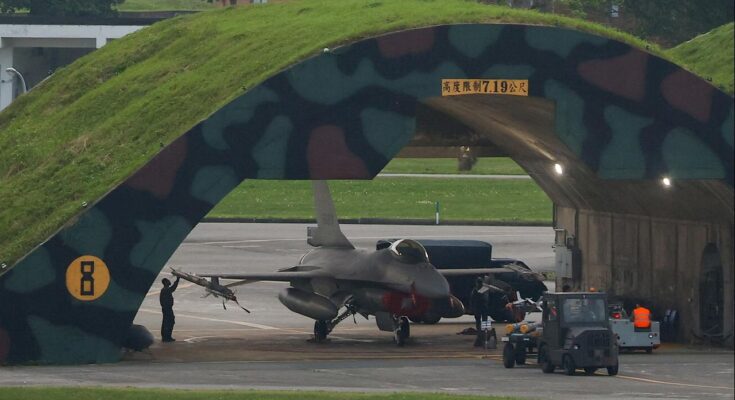China is “deeply dissatisfied” that US President Trump agreed to an arms deal with Taiwan for the first time in his second term. Beijing said it was sending false signals to Taiwan and saw Taiwan’s sovereignty as being in danger.
The US agreed to an arms deal with Taiwan for the first time in President Donald Trump’s second term, angering China. As the US Department of Defense announced, these are spare parts for a fighter jet worth $330 million. The sale aims to maintain the operational readiness of Taiwan’s F-16 and C-130 aircraft fleet. This should improve the country’s ability to respond to current and future threats.
The government in Taipei thanked them. “Deepening the security partnership between Taiwan and the United States is an important foundation for peace and stability in the Indo-Pacific region,” said Presidential Office spokesperson Karen Kuo. The sale will “become effective” within a month, Taiwan’s defense ministry said.
Beijing sees China’s sovereignty as being in danger
The Chinese government in Beijing reacted angrily to the arms deal. “The Taiwan issue is part of China’s core interests and the first red line that must not be crossed in Sino-American relations,” said a Chinese Foreign Ministry spokesperson.
The arms sales send the wrong signal “to separatist forces seeking Taiwan independence.” The sovereignty and security interests of the People’s Republic will also be violated. “China is very dissatisfied with this and firmly rejects it,” the spokesperson said.
Ongoing conflict between Taiwan and China
China views democratically ruled Taiwan as a breakaway province and has not ruled out violent conquest. Unification is the main goal of the communist leadership. In contrast, the government in Taipei firmly rejects Beijing’s claim to sovereignty. Only the Taiwanese people themselves can determine their future.
Just in late October, China appeared to have rehearsed an attack on Taiwan – just days before a planned meeting between US President Trump and Chinese President Xi Jinping. Taiwan accuses the People’s Republic of China of exerting pressure through routine military operations in the waters and airspace around the island.
US: No formal diplomatic relations with Taiwan
The United States maintains formal diplomatic relations with Beijing, but not with Taiwan. However, they are legally obliged to provide Taiwan with the means of self-defense.
Taiwan, a long-standing Japanese colony until the end of the Second World War, is barely recognized internationally. Even supporters of the island nation’s defense, such as the United States, officially maintain diplomatic relations with the People’s Republic of China based on the principle of one China, not with the Republic of China – Taiwan’s official name.



